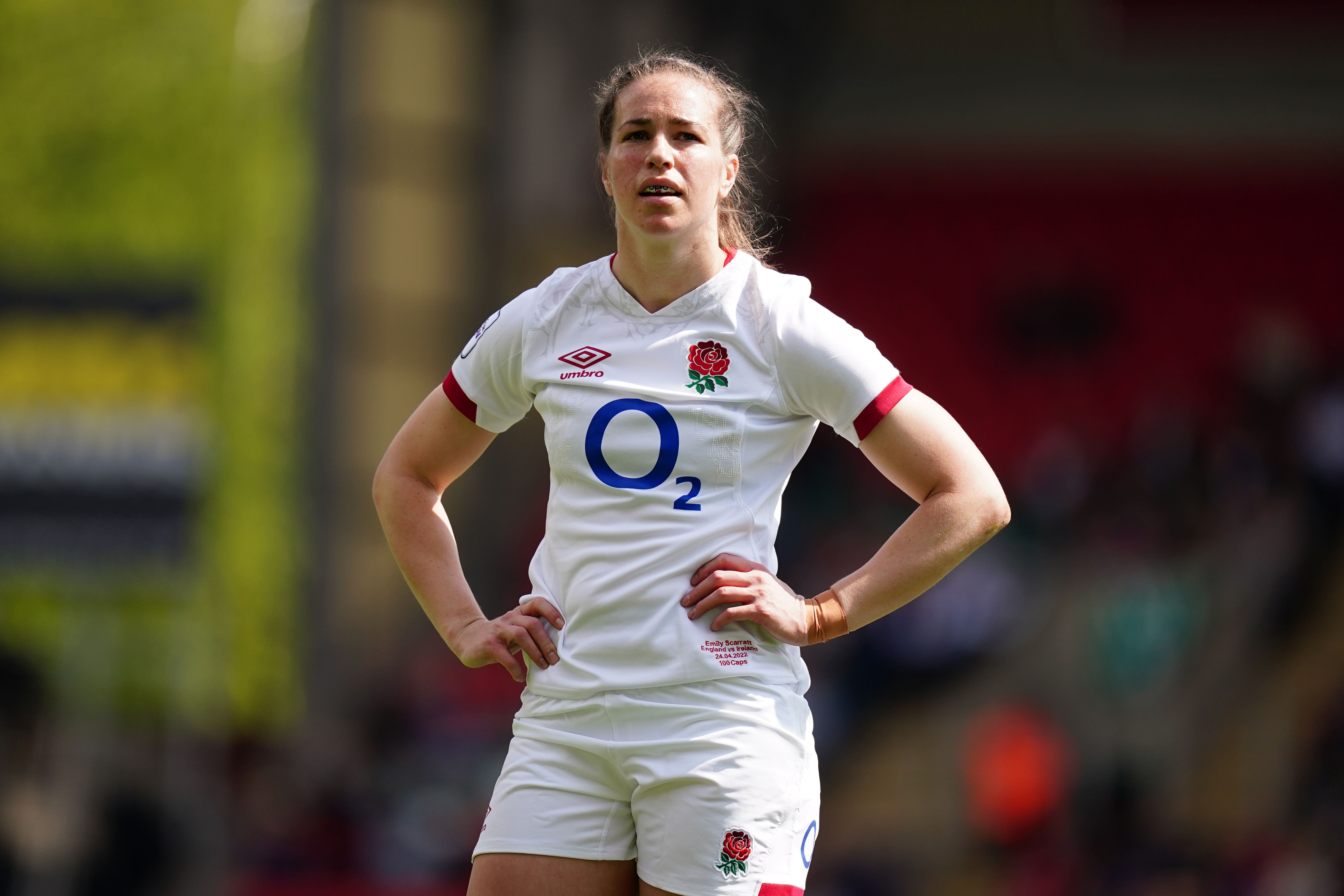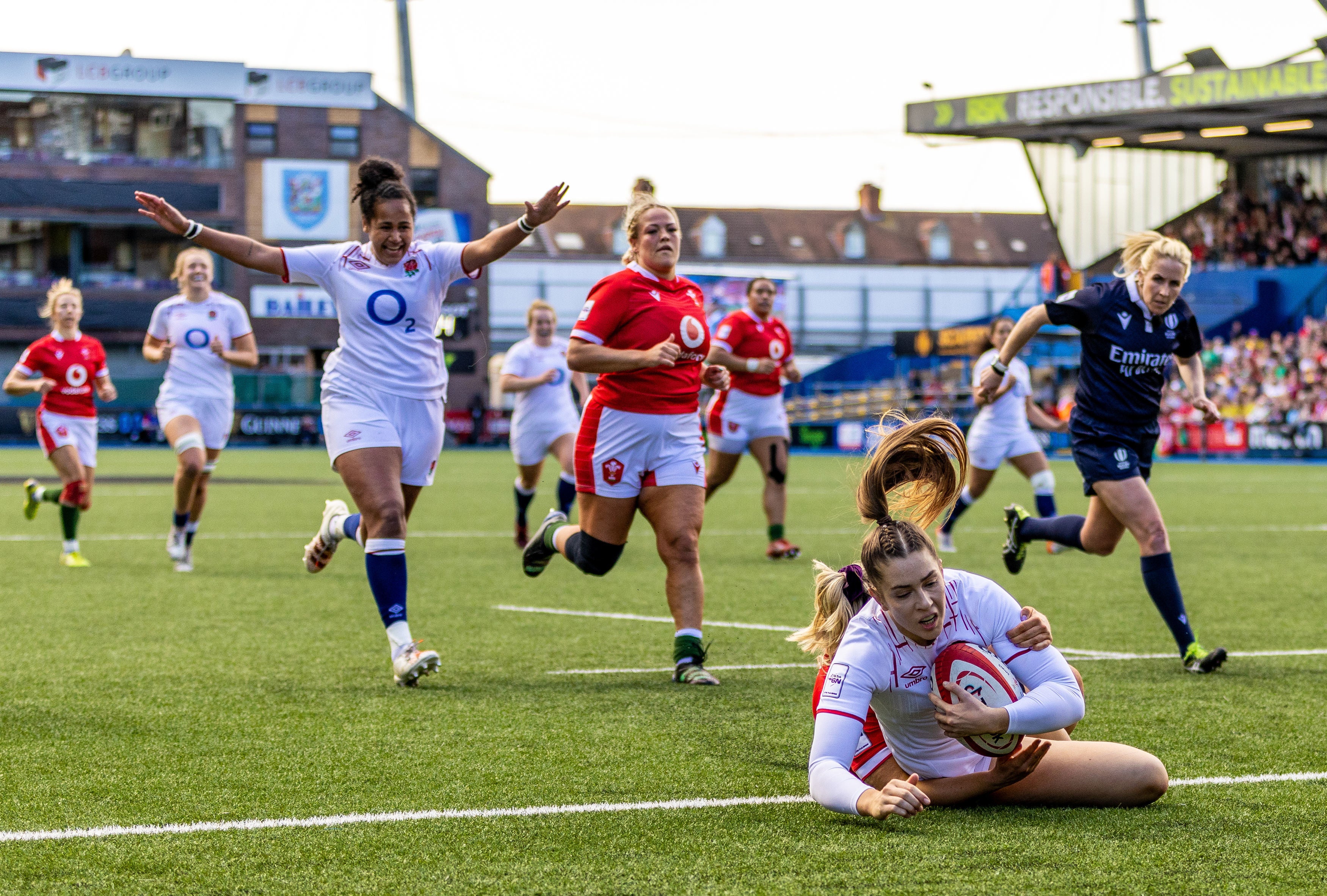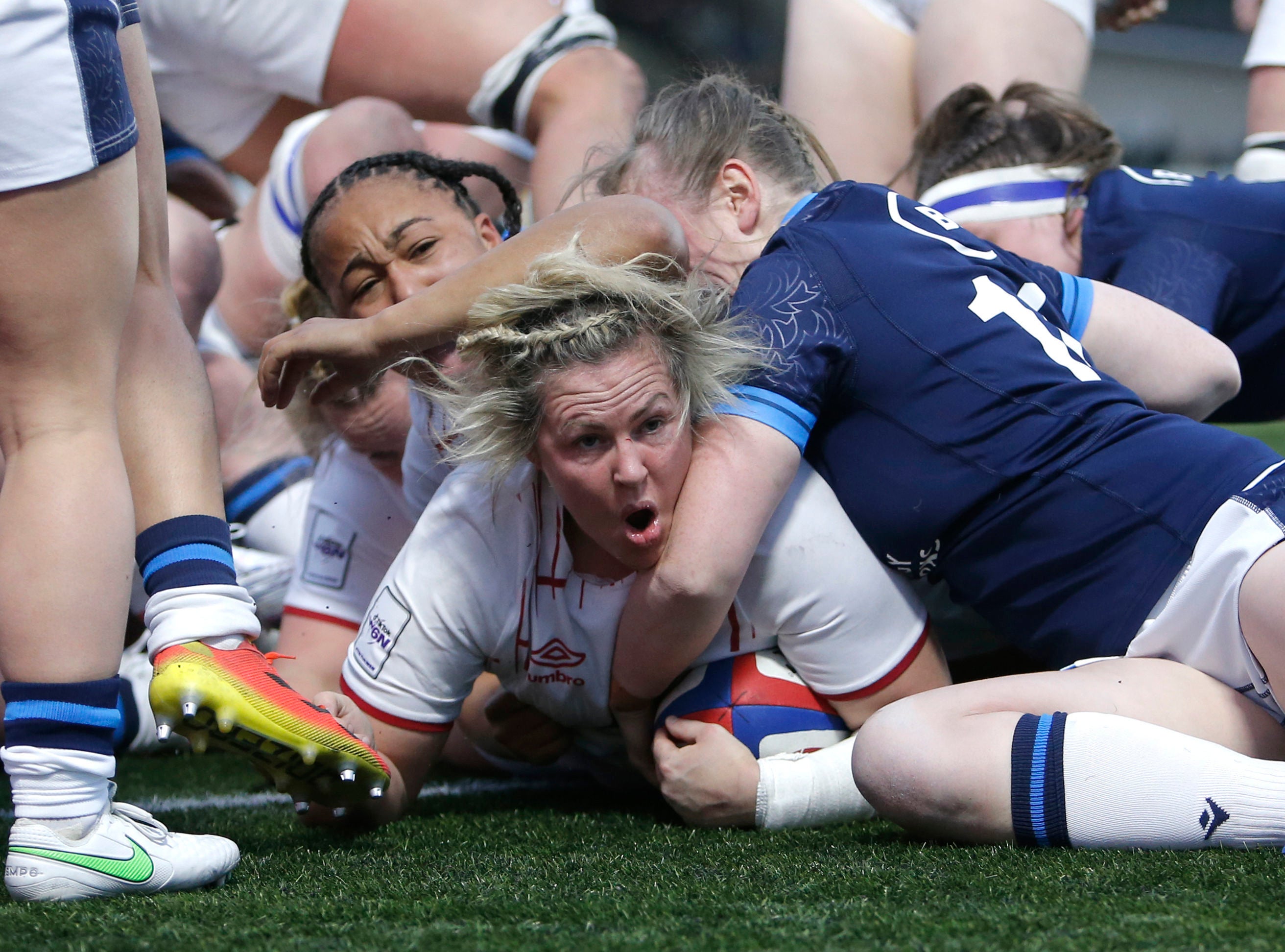Helena Rowland: ‘I sat on my bed and cried – it dawned on me just what I was missing out on’
Helena Rowland is regarded as one of England’s brightest talents
Sign up to our free sport newsletter for all the latest news on everything from cycling to boxing
Sign up to our free sport email for all the latest news
Thanks for signing up to the
Sport email
“I just sat on my bed and cried,” says Helena Rowland, softly and soberly, as the pain comes flooding back. The 23-year-old is thinking back to a moment alone in an Auckland hotel on the morning of a World Cup final in which she had been set to star.
Seven days prior to a November showpiece, Rowland’s tournament was ended by serious injury. The 23-year-old had enlivened the first half of a last-four encounter with Canada, bouncing back from a tough quarter-final against Australia in monsoon conditions to star as England built an early lead that proved crucial as they survived a significant semi-final scare.
But four minutes after the half-time interval, on a trademark jive up the left touchline, Rowland’s foot was wrenched one way and her ankle the other – a torn ligament in each meant her final dreams were at an end.
“Immediately I knew that was my tournament over, which was pretty tough to take going into what would have been probably the biggest week of my career,” Rowland recalls to The Independent. “I wasn’t the only one in that boat which made it a bit easier. We could lean on each other a little bit and stay happy on the surface being around the squad.
“That was the thing that I was most conscious of – I didn’t want to bring anyone else down. Although it is rubbish for me to not have a chance of being involved, you’ve got to take yourself out of that a little bit and keep doing all you can for the team.”
Recommended
But behind the upbeat façade, the tears understandably came. “The morning of the final was hard. I was rooming with Claudia MacDonald and she was seeing physios or whatever at the time, so wasn’t in the room.
“I just sat on my bed and cried. I thought ‘I’m on my own, I’m not going to affect anyone’. It kind of really dawned on me, I suppose, just what I was missing out on in terms of playing. But then it was ‘right – pull yourself together.”
Rowland could only commiserate on crutches as her squad mates fell short at Eden Park. A week after landing back in the United Kingdom, the England playmaker underwent surgery. The initial prognosis suggested a six or nine-month recovery, a timeline that would have ruled Rowland out of the Six Nations.
Helena Rowland’s World Cup was ended by a serious injury in the semi final against Canada
February brought brighter news as England’s medical staff floated the possibility of making it back for next weekend’s eagerly anticipated encounter with France. It will be the best-attended game of women’s rugby in history.
“Initially, I didn’t set myself too many targets,” Rowland explains. “I was very much focussing on making sure I was really diligent and taking each week as it comes. That helped at the start because there was a lack of pressure about getting back.
“But when they mentioned the France game…that was the one game that I think everyone wants to be involved in. There were a few rocky weeks where it maybe wasn’t going as well as I wanted to, or I was fatigued, but it was all going to be worth it because I was going to be back on that pitch potentially sooner than I thought in front of a big crowd.
“To have sold as many tickets for a standalone game is massive. It’s always a massive game against France so to have that as the showcase there is going to be pretty special.”
Balancing the final year of a sports science degree and full days rehabbing at Loughborough University has meant that any suggestion that she’s been able to at all put her feet up during her recovery is misguided. The hours have been long and the rehab tough but Rowland has made it back ahead of schedule, helped by advice from teammate Abby Dow, who made her own swift return from serious injury last year.
Unlike most of her teammates, the versatile Rowland remains unbeaten in an England shirt, returning to the bench against Ireland this weekend in no mood to relinquish that particular record. England’s attacking style rolled out during this campaign would appear to suit a player comfortable in a variety of roles; her close relationship with former sevens colleague Holly Aitchison, who has blossomed in the starting fly-half role in recent weeks, promises plenty in playmaking partnership.
Ireland find themselves in strife on and off the pitch, battling at the bottom of the Women’s Six Nations table and confronting serious allegations of continuing sexism and mistreatment of female players made in The Telegraph last week.
“Obviously – this is the understatement of the year I think – it’s not in a good place at the moment,” Rowland says. “In terms of what they are having to deal with from an off-pitch point of view, you don’t want to see any team going through that sort of thing. But you know that when those players take the pitch on Saturday there is a huge amount of pride in that shirt and they are going to give everything they’ve got.”
Has Rowland faced that sort of misogyny in her young career? “Not on any level like that,” she replies, before continuing with tales depressingly familiar to so many in the sport.
“As a child growing up, there was a little bit. I was playing mixed rugby, and I was the only girl, so you would get a bit from that point of view. ‘She’s only a girl’, and things like that. It shouldn’t happen, but I think any of us that have played from a young age that seems to have been a theme. But, for me, I was like: ‘I’m going to prove you wrong’.”
Recommended
That sort of outlook still drives Rowland and her Red Roses team mates as they continue to set the Six Nations standard. “I think attitudes are definitely changing and they have changed a lot since we were coming through the system. We are obviously not there yet with the reports coming out at the moment.
“It is a real thing that we as a squad pride ourselves on almost. We are the faces of it, we are the ones that people see. It is a big part of our responsibility to be those role models and make ourselves as visible as possible to promote the change.”
Source: Read Full Article








